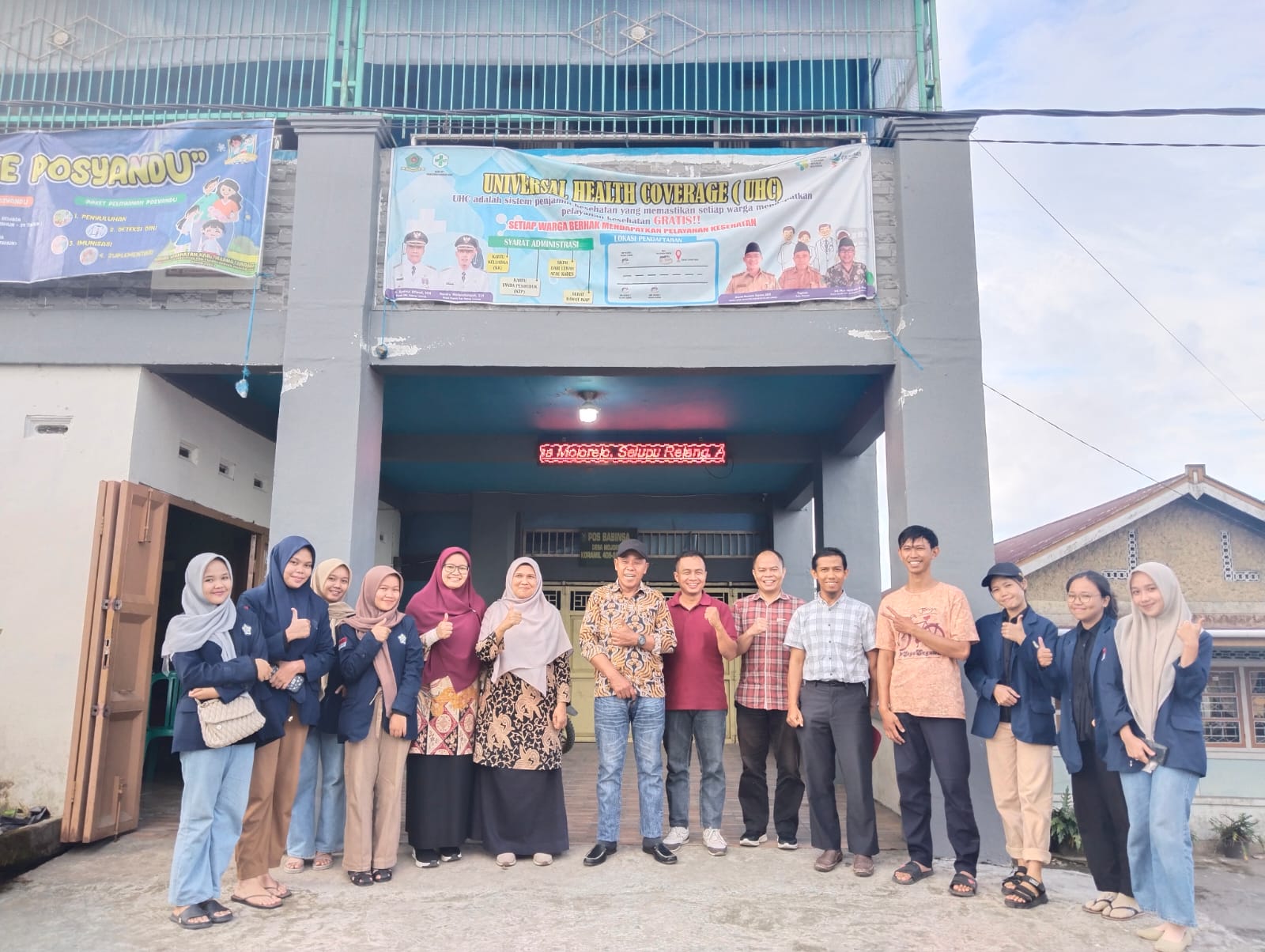
Thematic Community Service Program (KKN) for Bachelor of Mathematics Students in Mojorejo Village: “Statistically Literate Village” (Desa Cantik)
In September 2024, the Bachelor of Mathematics Study Program at the Faculty of Mathematics and Natural Sciences, Bengkulu University, organized the deployment of students for a Thematic Community Service Program (KKN). The program took place in Mojorejo Village, Selupu Rejang Subdistrict, Rejang Lebong Regency, involving 10 students. This thematic KKN program is part of the Merdeka Campus Competition Program (PKKM) initiated by the Bachelor of Mathematics Study Program to enhance students’ contributions to community service, particularly in the fields of statistics and data science.
The program, held from September to December, was themed “Statistically Literate Village” (Desa Cantik). The theme aimed to promote better use of data and statistics at the village level to support evidence-based decision-making. In an increasingly digital era, it is vital for villages to develop the capability to understand, manage, and utilize data for sustainable development and community empowerment.
During the program, students not only collected data on various aspects of life in Mojorejo Village but also provided training and mentoring to village officials and local residents. These training sessions covered accurate data collection methods, data management using statistical software, and basic data analysis that could be applied to village development planning.
In addition to training village officials, students also involved community groups such as youth organizations, women’s associations (PKK), and farmer groups. This inclusive approach aimed to raise awareness of the importance of data in everyday life. By targeting all elements of the community, the thematic KKN program sought to empower the entire village population, fostering synergy among stakeholders in Mojorejo Village to build a more advanced and self-reliant community.
The program’s success relied on strong collaboration between Bengkulu University, the village government, and the residents of Mojorejo Village. Full support from the village head and local officials greatly motivated students to execute the program to the best of their abilities. Living in the village during the program allowed the students to engage directly with the community, understand local challenges, and collaboratively develop solutions.
This thematic KKN program also provided numerous benefits for participating students. Beyond gaining hands-on experience in the field, they applied the statistical knowledge acquired during their studies. Moreover, the program honed their soft skills, such as communication, leadership, teamwork, and problem-solving. These skills will undoubtedly serve as valuable assets as they transition into the professional world.